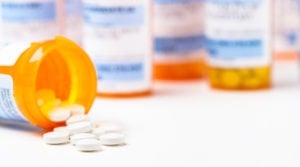
A controlled substance is a drug, chemical, or other substance that is government regulated due to its potential for addiction or abuse. Federal and state governments regulate the manufacturing, distribution, possession, and use of these substances, as referred to as “drugs.” Controlled substances in Texas are any drug, adulterant, or dilutant listed in the schedules provided in the Texas Controlled Substances Act (TSCA) of 1989.
Under the TCSA, it is illegal to manufacture, distribute, prescribe, analyze, or dispense a controlled substance unless you are registered or exempt from registering with the Drug Enforcement Agency (DEA). The TSCA is a state version of the federal Controlled Substances Act (CSA) established in the Comprehensive Drug Abuse Prevention and Control Act of 1970.
Controlled Substances Are Categorized by Addiction and Abuse Potential
Federal and Texas law organizes controlled substances into five schedules or categories based on their potential for addiction and abuse. Drugs that are a greater threat are classified in Schedule I while the least dangerous drugs are put into Schedule V. The categorization of controlled substances in these schedules formed the basis for the country’s war on drugs.
Schedule I Drugs
Controlled substances in Schedule I are the most dangerous and have the highest risk for abuse and addiction. There are no medical uses for them at the state or federal level. Heroin, marijuana, LSD, PCP, ecstasy, and crack cocaine are among the drugs on this list. Marijuana is still considered amongst the most easily abused drugs and has no legal medical use in Texas. Thus, the drug is still illegal in the state.
Schedule II Drugs
Substances in this category are high for abuse or addiction risks but have accepted medical uses in particular cases. These substances can be obtained with a prescription; however, they typically create psychological or physical dependence. Drugs in Schedule II include morphine, cocaine, oxycodone (Percodan), amphetamine (Adderall), hydrocodone (Vicodin), methylphenidate (Ritalin), and fentanyl.
Schedule III Drugs
Schedule III drugs have a low to moderate risk for physical or psychological dependence. If misused, however, they can be prone to addiction and abuse. They are considered less dangerous than the drugs in Schedules 1 and 2. Further, a doctor can prescribe them. Drugs like ketamine and anabolic steroids are on this list.
Schedule IV Drugs
Controlled substances in this schedule have a clear medical use and low chances of resulting in abuse or dependence. Doctors prescribe them to patients who need them. They include Xanax, Valium, Ambien, Tramadol, Ativan, and other anxiety medications and muscle relaxers.
Schedule V Drugs
Schedule V represents the lowest risk and the least potential for addiction or dependence in users. Taken frequently or in larger quantities could lead to physical or psychological dependence. Robitussin and other cough syrups are on this schedule. Nerve pain medications such as Lyrica and Gabapentin also fall under Schedule V.
Types of Illicit Drugs
Texas names four types of specific drug categories for illicit drugs:
- Narcotics
- Hallucinogens
- Stimulants
- Depressants
Narcotics
The term “narcotics” refers to specific drugs that are derived from the opium poppy plant. These drugs numb the senses and create a feeling of well-being. This is why they are in pain relief medicine. Narcotics are called opiates, or, more modernly, referred to as “opioids.” Heroin, morphine, and hydrocodone are examples of narcotics.
Hallucinogens
Hallucinogenic drugs alter a person’s perception of reality and their mood. They affect the way a person sees and relates to time and space. Examples of these drugs include LSD (acid), PCP, mushrooms, and peyote.
Stimulants
Also called “uppers,” stimulants speed up the body’s processes by accelerating the central nervous system. Heart rate and blood pressure increase when using these drugs. Users tend to feel more alert, awake, and euphoric. Uppers include cocaine, crystal meth, Adderall, and Ritalin.
Depressants
Depressants are also called “downers.” They depress the nervous system, slowing down the body’s processes. Heart rate and blood pressure also decrease. They can make the user feel drowsy, sleepy, or relaxed. Sedatives and tranquilizers are types of depressants. Commonly used depressants include Valium, Xanax, heroin, and Rohypnol (Roofies).
Punishment for Controlled Substances in Texas
Getting caught with a controlled substance in Texas can result in harsh penalties. Texas is among the toughest states on drug crimes. Possession of most illegal drugs in the state can result in a felony charge at minimum. Punishment will depend on the severity and the amount of the drug.
Penalties may be intensified or mitigated depending on the location you were found and the number of drug offenses you had. Arrests in drug-free zones like school zones will result in harsher punishments.
Texas establishes penalties for manufacturing and possession based on the penalty group the drug belongs in. There are four main penalty groups and two subgroups. While there is an overlap with the drug schedules, penalty groups do not necessarily correspond to the drug schedules.
Penalty Groups Determine Punishment
Penalty Group 1 includes the most dangerous drugs which can be punished up to life in prison or a hefty $250,000 fine, depending on the felony degree. This group mostly includes opiates/opioids like cocaine, heroin, and LSD.
Penalty 4 represents the least severe punishment for drug crimes. Substances in this group include prescription drugs containing a small amount of codeine like Tylenol with codeine. At the low end, Penalty 4 crimes are a misdemeanor with 180 days of jail time and up to $2000 in fines. In more severe cases, they can also be felony crimes.
Call Blass Law for Drug Defense
Whatever your charges may be, getting caught with a controlled substance in Texas can be difficult to fight in court. At Blass Law, one of our Houston drug possession lawyers will navigate you through the tough criminal justice system. Contact us immediately at (713) 664-4000 for a consultation. Your freedom may depend on it.
